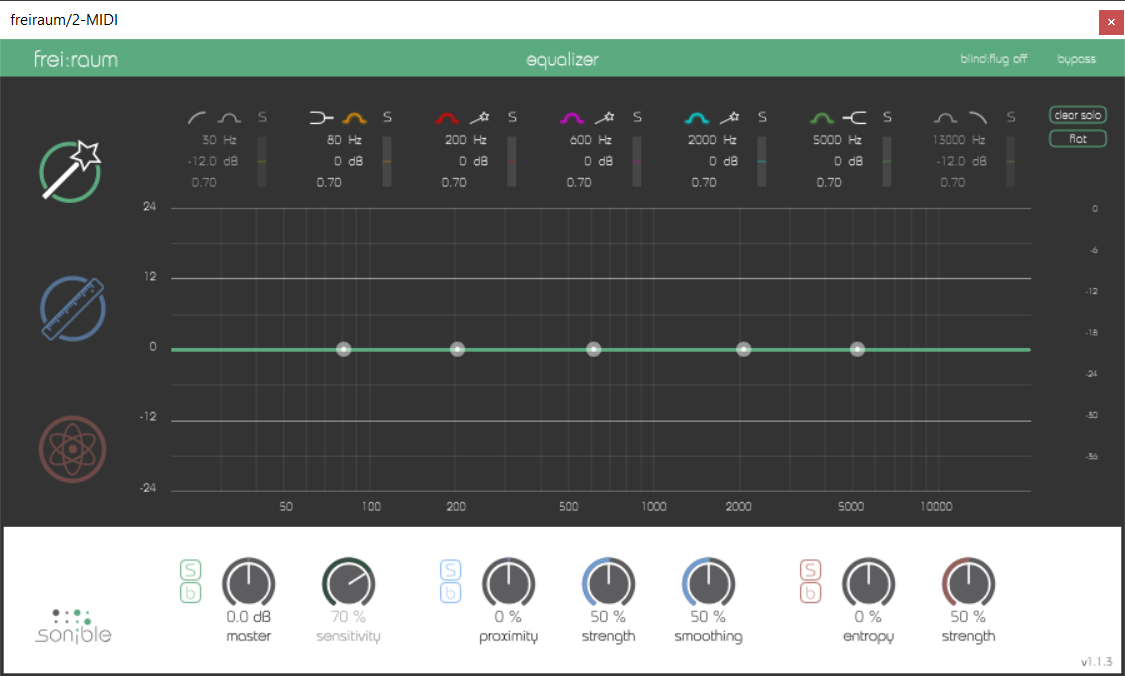Buy smart:deess, get a free gift with purchase:


Where other de-essers just reduce volume– smart:deess goes far deeper and creates a more natural, better balanced sound. By harnessing the power of a fully trained neural network, smart:deess identifies the exact start and end points of phonemes without the need to set a threshold. And thanks to its ability to process the entire phoneme using spectral processing, you’ll never want to go back to your old de-esser.
- Tackle de-essing and plosives with a single plugin
- AI processing instantly adjusts the settings according to the source material
- “Ess” sounds can be fully shaped and refined, not just turned down
The world’s first de-esser that combines phoneme detection with advanced spectral de-essing.
The content-aware approach
Simply tackling sibilance and plosives
smart:deess analyzes the signal’s actual content– not just the level of one frequency band– before it decides what to do. As soon as you load the plugin on a channel, smart:deess builds a ‘voiceprint’ of the input voice signal and starts balancing any sibilants and plosives that are present. Your job then is to review the analysis and refine the results. smart:deess allows you to spend time on getting the sound you want, rather than correcting the sound you don’t want.
The power of AI
Looking deeper than ever before
smart:deess identifies specific individual phonemes– S, Z, Sh, Ch, T, P...– in real time, determining the exact start and end point of each sibilance without you having to set a threshold. The entire sibilant is then processed, rather than just the loudest part, making the final result far more natural sounding. Each phoneme type is identified and processed independently, an “Ess” is treated differently than a “Ch”, which is treated differently than a “T”. The result is as though the original recording had simply been better balanced.
Spectral processing
Shape and refine
Other de-essers are just automatic volume controls. smart:deess does contain a broadband component, but it also draws on additional spectral processing to shape and refine harsh sounds at a deeper level. Use the Color controls to tune the sibilant character (soft, balanced or sharp) and achieve the desired balance without losing edge. What’s more, dull and lisping sibilants can be revived and given new life by applying smart:deess' spectral processing.
With smart:deess, tedious clip-gaining of sibilants is history.
System Requirements
Mac
-
macOS 10.12+ (M1 Apple Silicon supported) (64-bit only)
-
RAM - at least 4 GB (recommended)
-
CPU - at least Intel DualCore i5 (recommended)
-
Plugin Formats - AU, VST2, VST3, AAX, MultiRack Native
-
Supported Sample Rates - 44.1 kHz to 192 kHz
PC
-
Windows 10+ (64-bit only)
-
RAM - at least 4 GB (recommended)
-
CPU - at least Intel DualCore i5 (recommended)
-
Plugin Formats - VST2, VST3, AAX, MultiRack Native
-
Supported Sample Rates - 44.1 kHz to 192 kHz
Compatible DAWs:
-
Logic Pro
-
Ableton Live
-
Pro Tools 11+
-
Reaper
-
Cubase
-
Nuendo
-
FL Studio
-
Studio One
Please Note: frei:raum is used as an example.
Mac Installation
1. Download the installer file from your Plugin Boutique account.
2. Double Click and open the installer file > Double-click the ‘frei:raum installer mac.mpkg’ file.
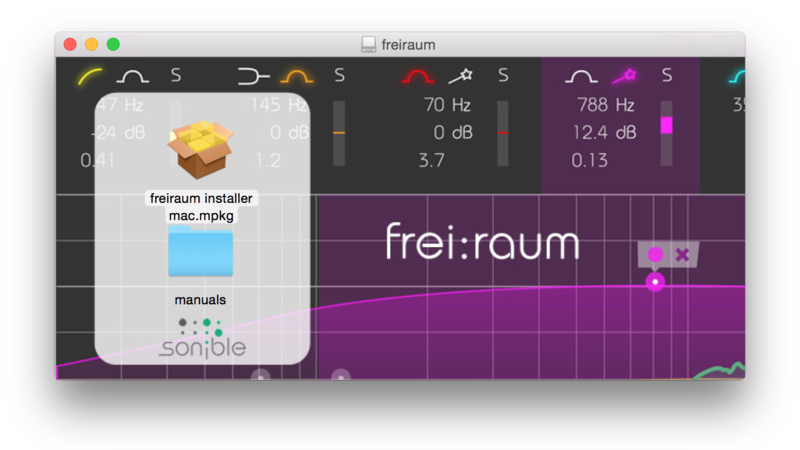
3. Begin the Installation Process > Click Continue.
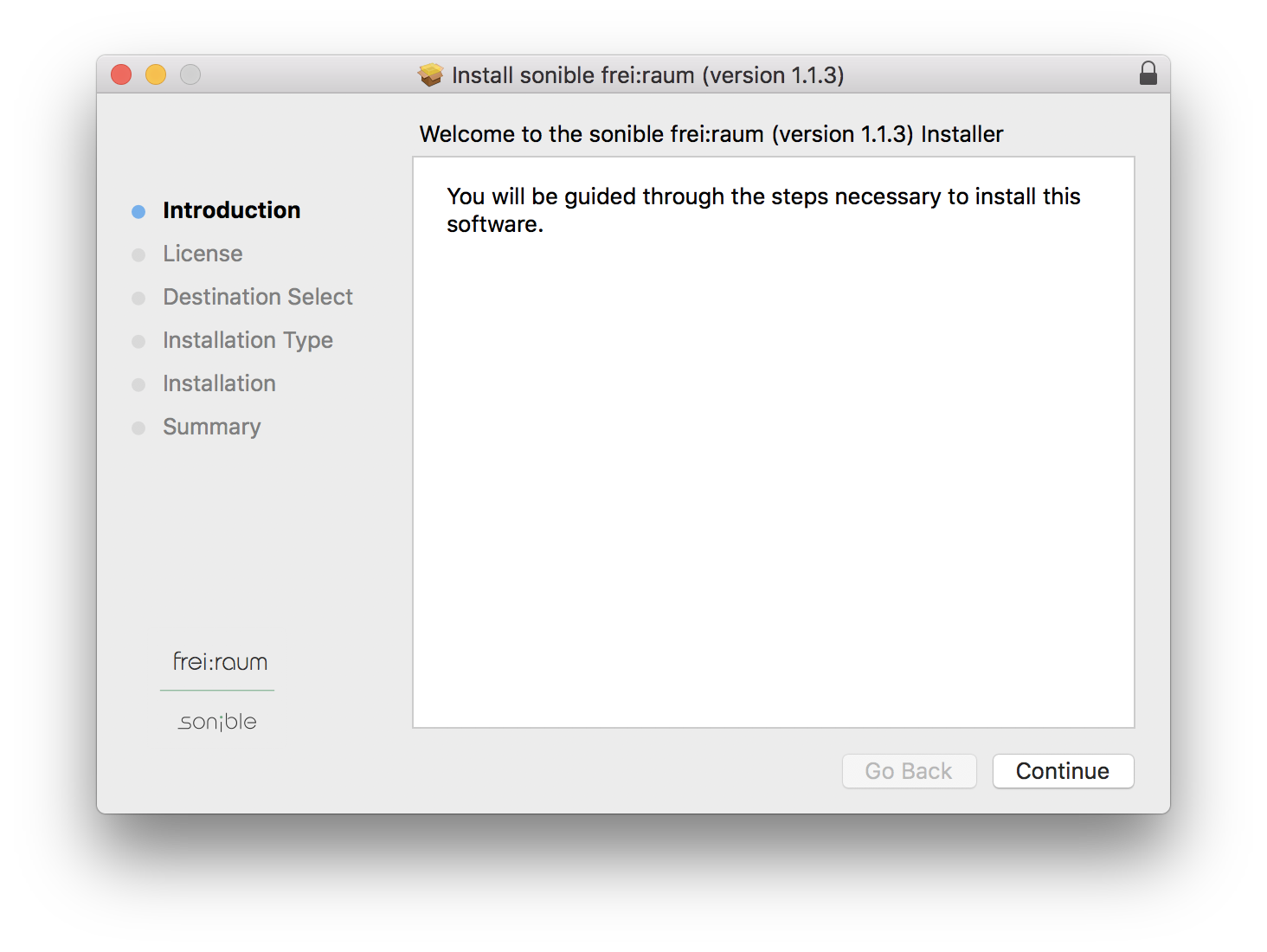
4. Read through the Terms & Conditions of the Licence Agreement > Click Continue > Click Agree.
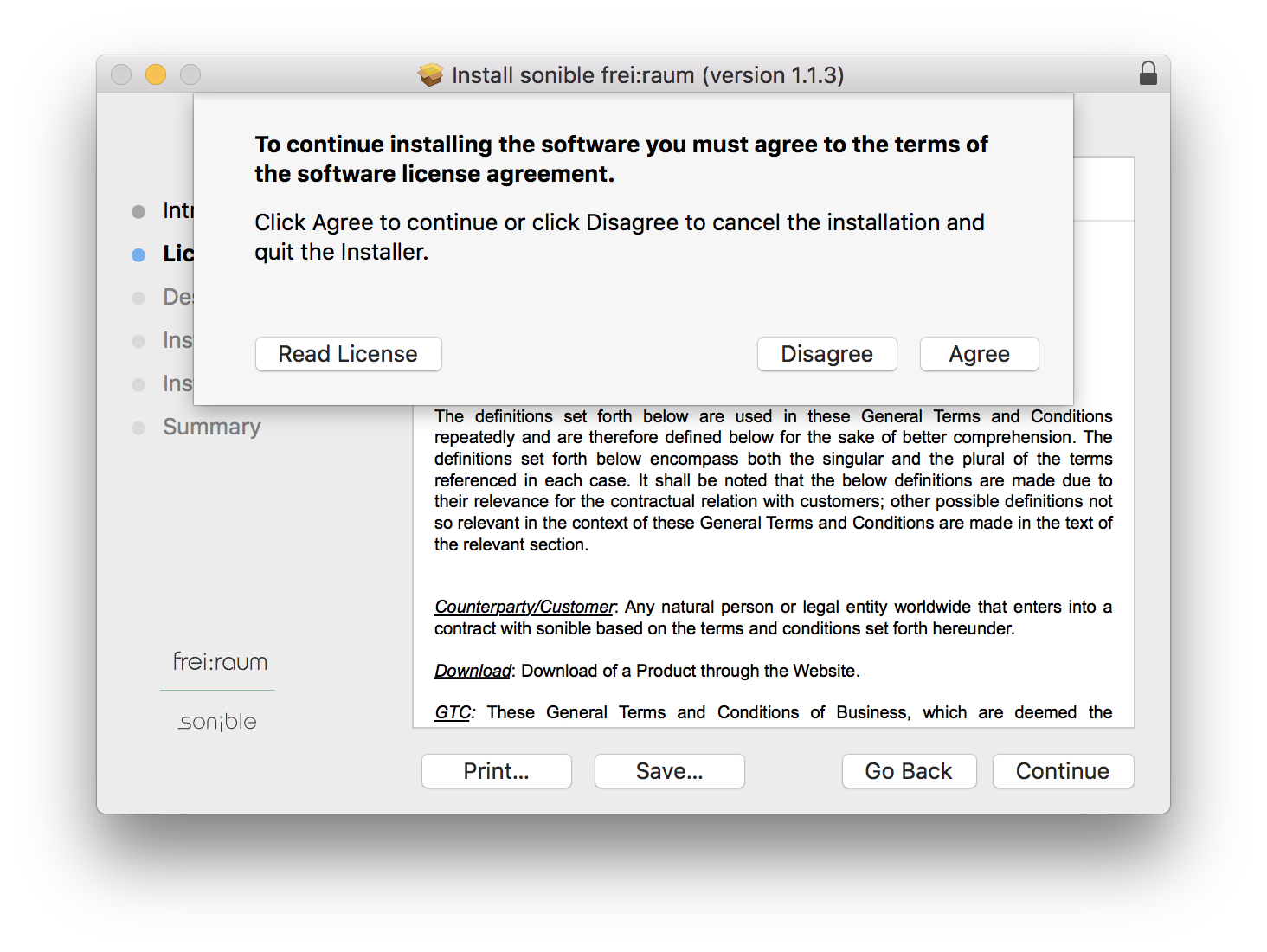
5. Select which software formats you wish to Install > Click Continue.
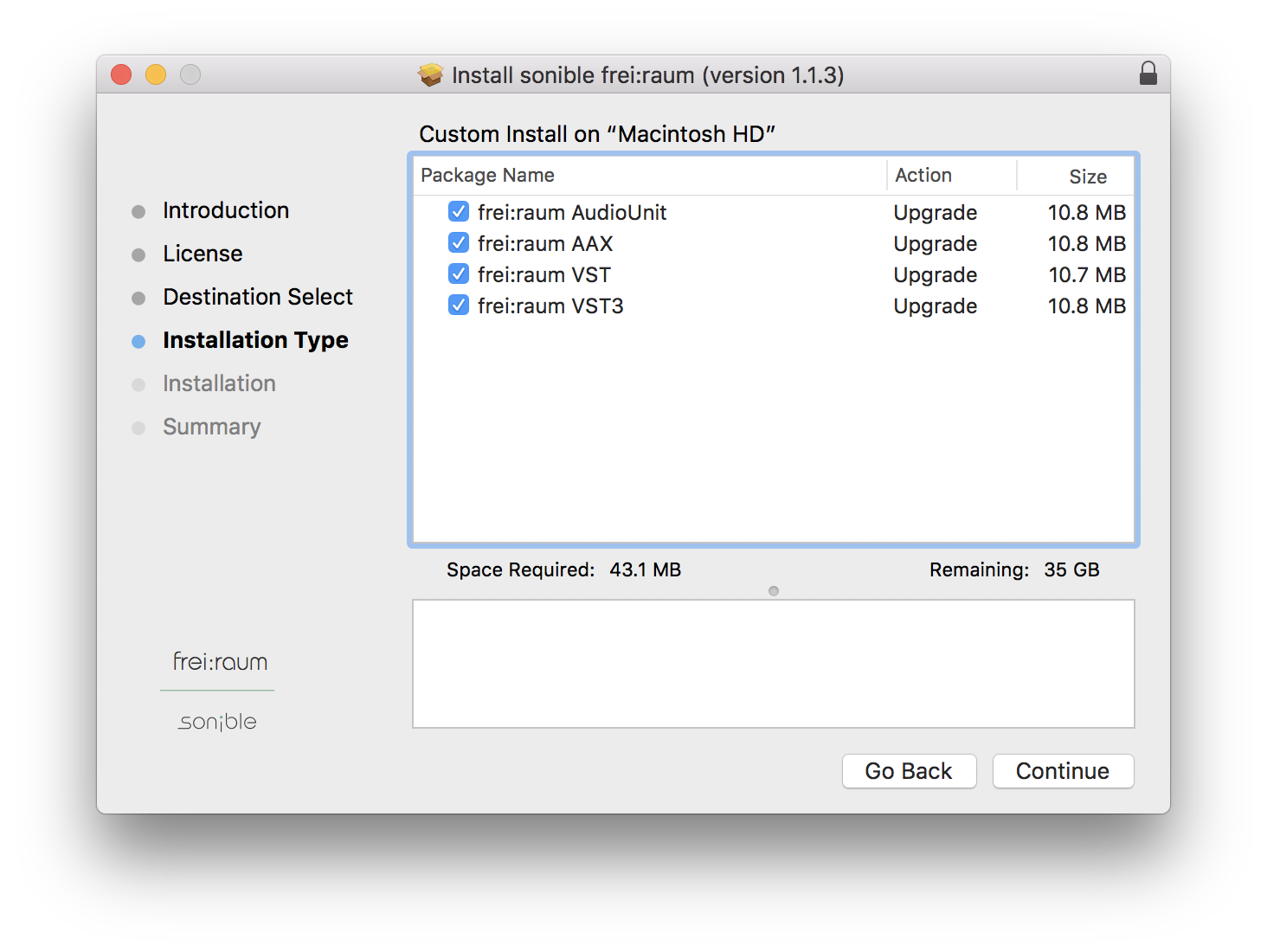
6. Confirm the Installation > Click Install.
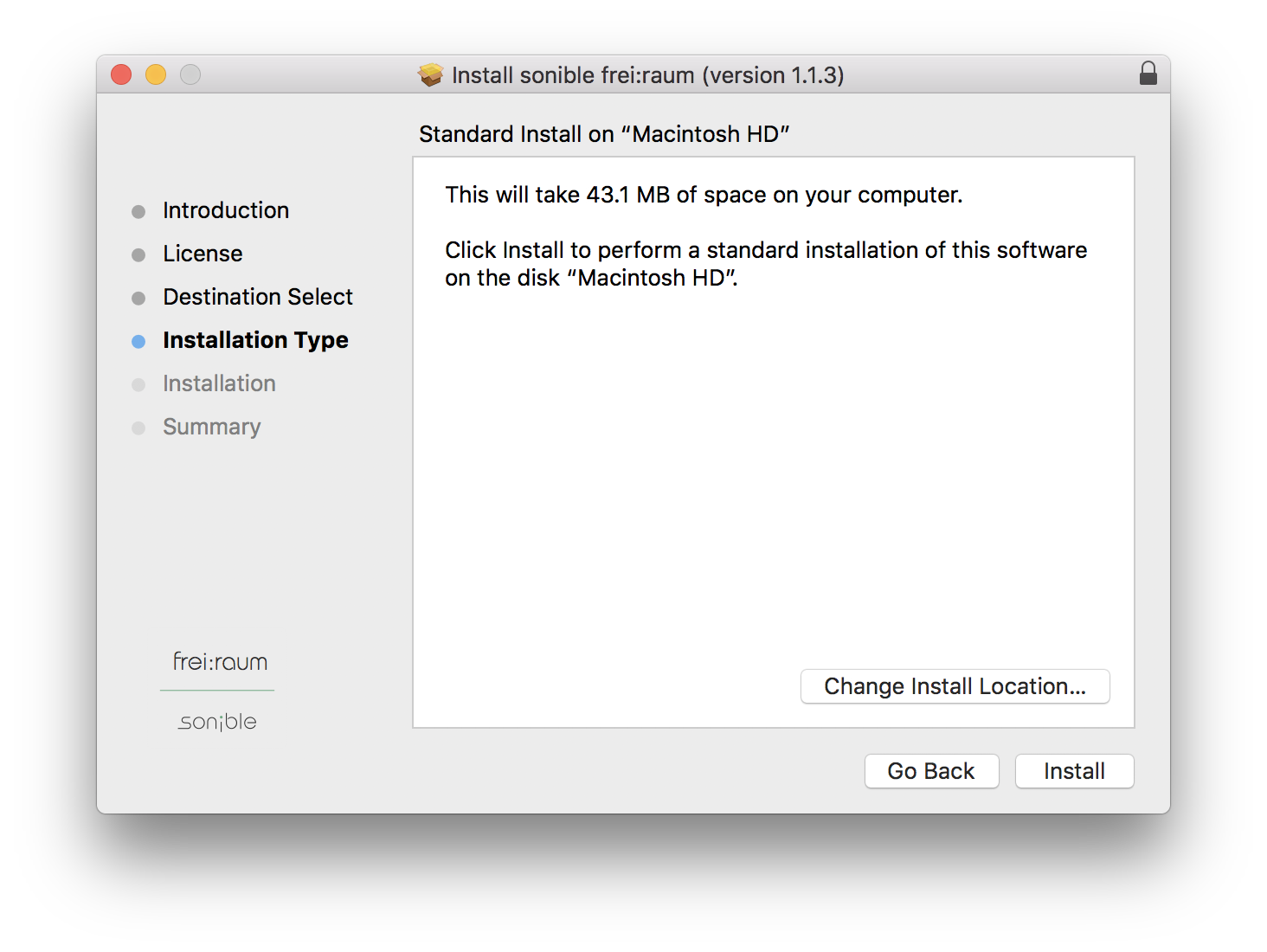
7. The Installation of your software has completed > Click Close.
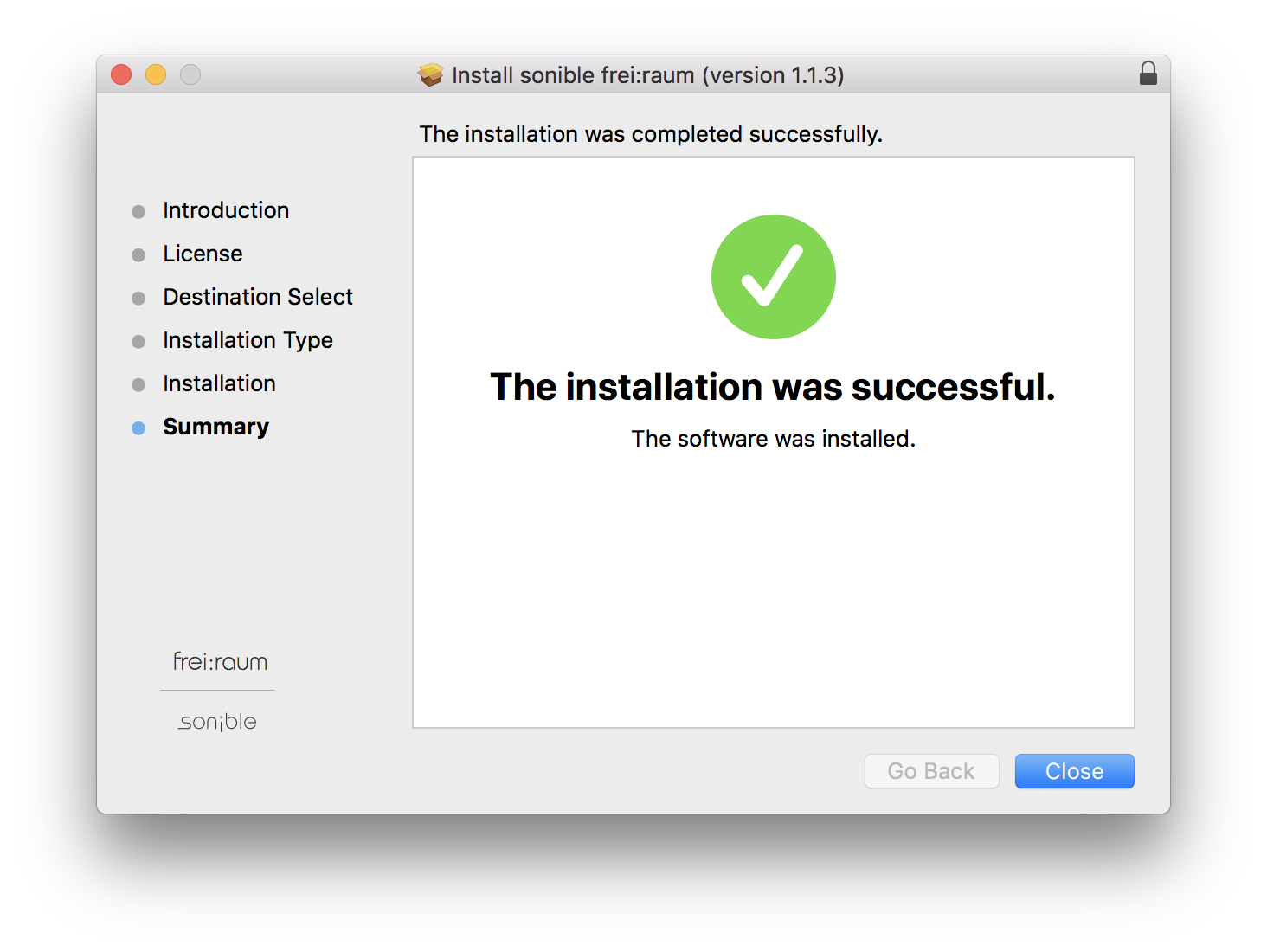
8. Open/restart your DAW and load your sonible software. Please note that you may need to refresh/rescan your DAW plugin list if you can't locate it.
Standard Activation Instructions
1. Locate and open the sonible software in your DAW.
2. Copy & paste/manually enter the licence key/serial code that is available in your Plugin Boutique account > Click Register.
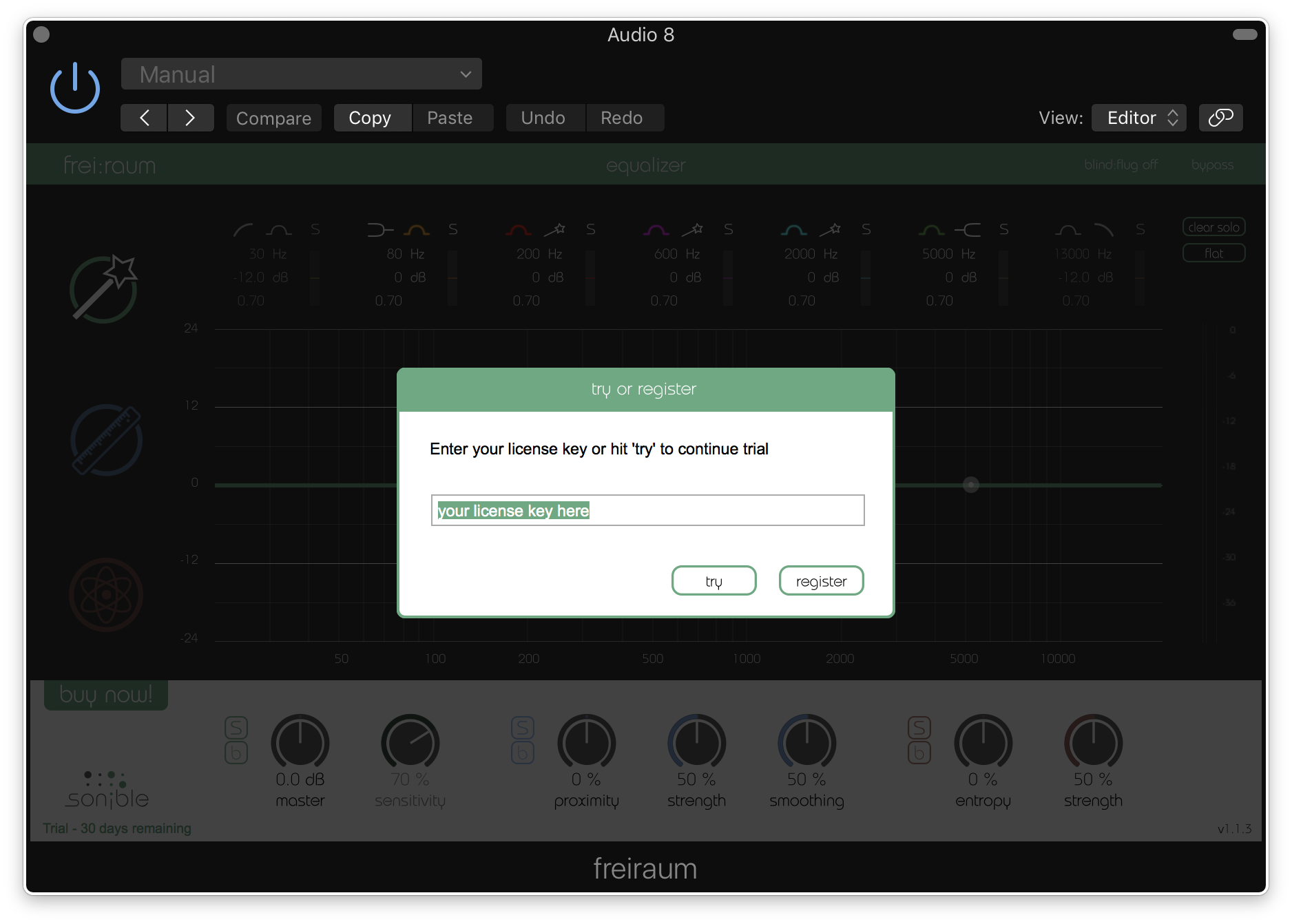
3. Your sonible software has now been successfully registered and authorised > Click Close.
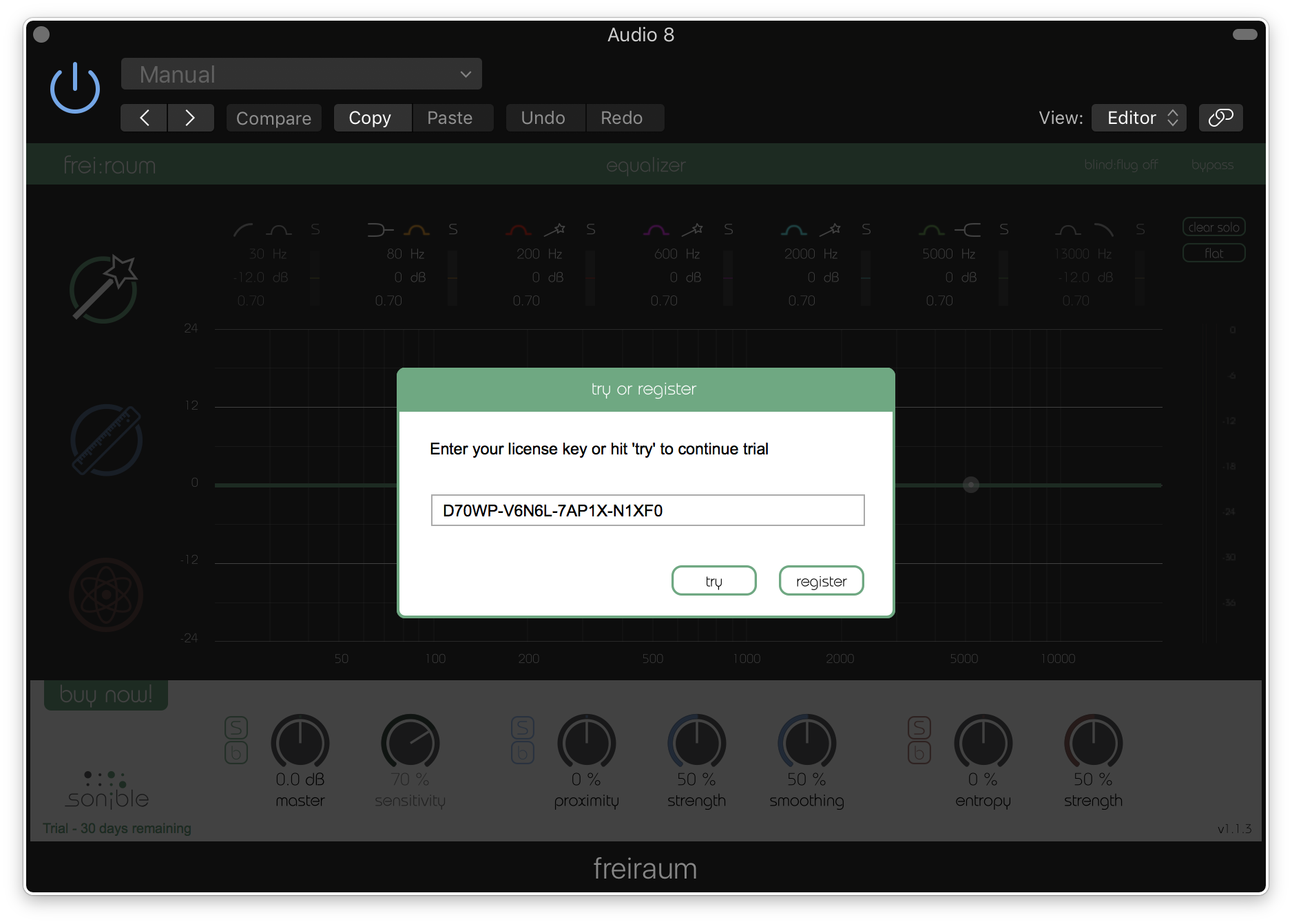
Your software is now activated and ready to use in your DAW!
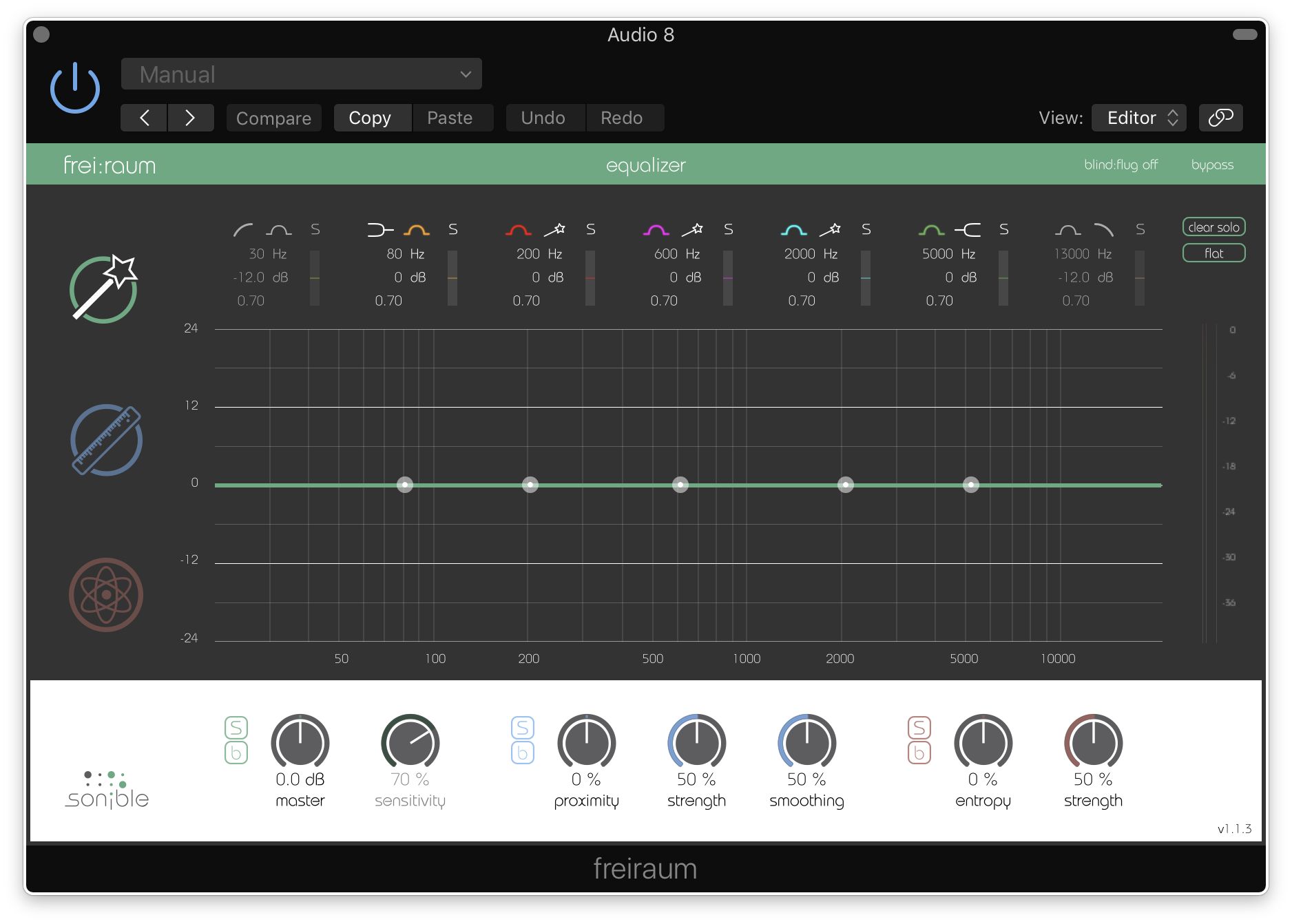
PC Installation
1. Download the installer file from your Plugin Boutique account.
2. Unzip the downloaded folder and Double click the file to open/run the installer.
3. Select which version or versions of the software that you wish to install (32/64-Bit) > Click Next.
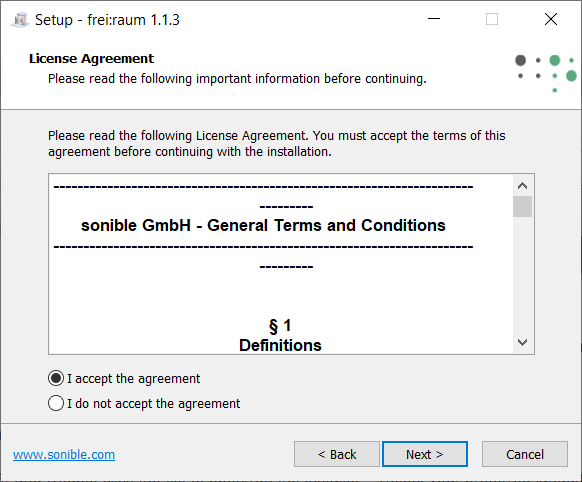
5. Read the Terms & Conditions of the Licence Agreement > Select 'I Accept the Agreement' if you accept the terms > Click Next.

6. Your software is now ready to install on your computer > Click Install.
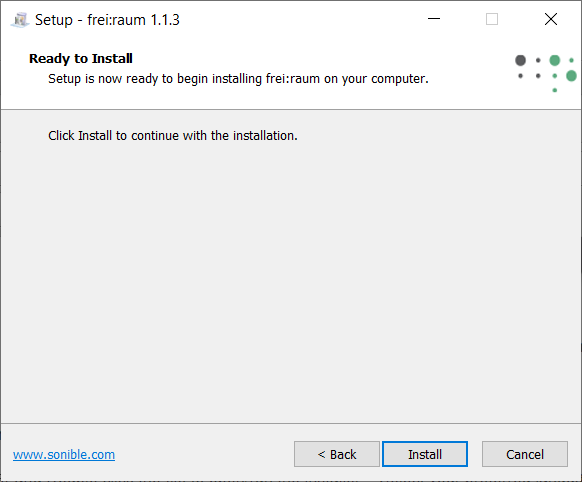
7. Your software is now installed > Click Finish.
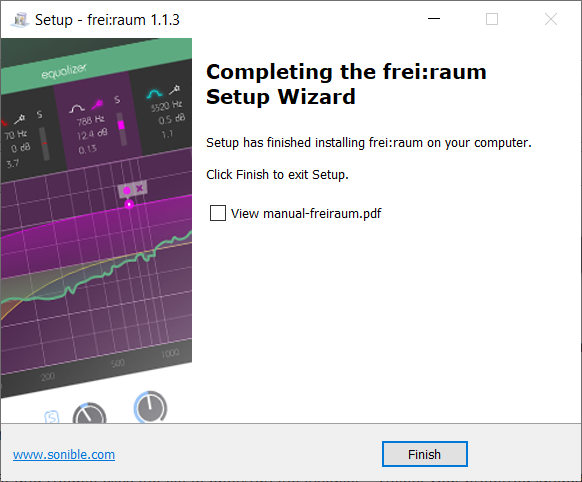
8. Open/restart your DAW and open your sonible software. Please note that you may need to refresh/rescan your DAW plugin list if the software fails to appear.
Standard Activation Instructions
1. Locate and open the sonible software in your DAW.
2. Copy & paste or manually enter the licence key/serial code that is available in your Plugin Boutique account > Click Register.
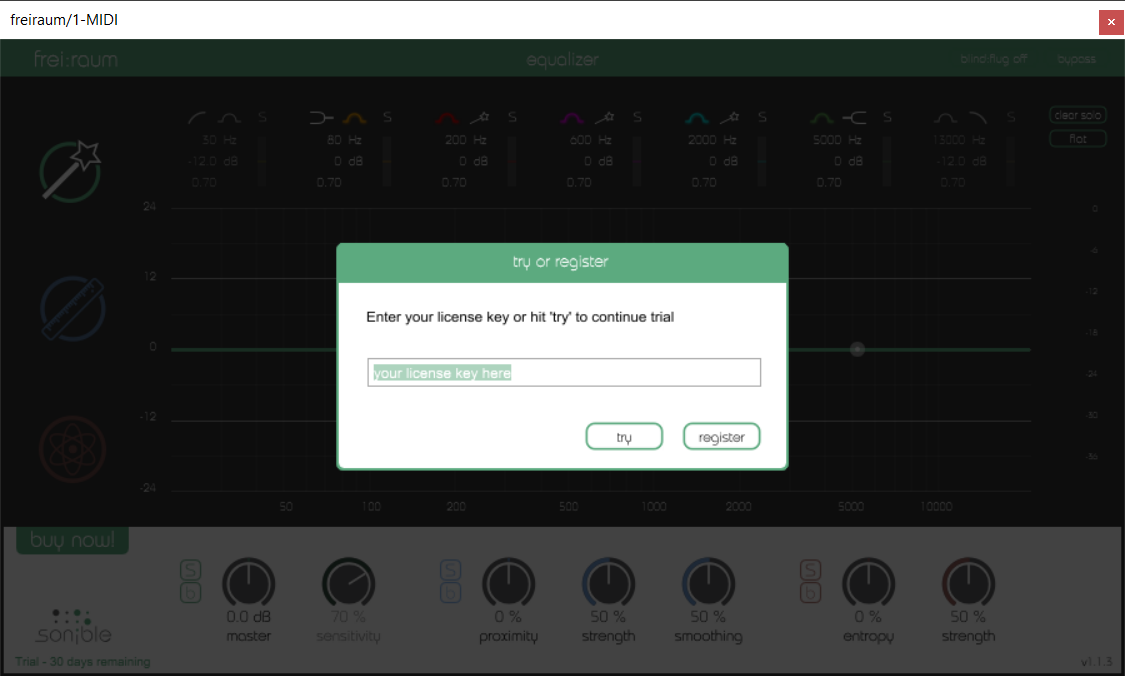
3. Your sonible software has now been successfully registered and authorised > Click Close.
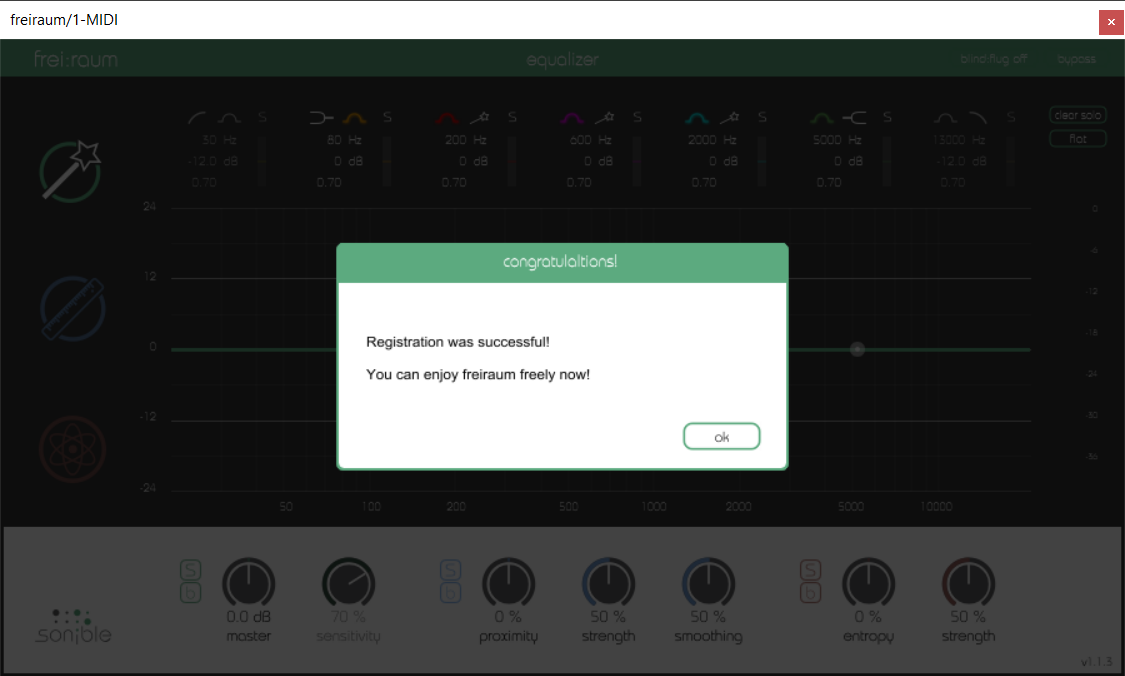
Your software is now activated and ready to use in your DAW!
